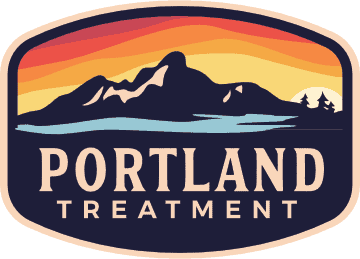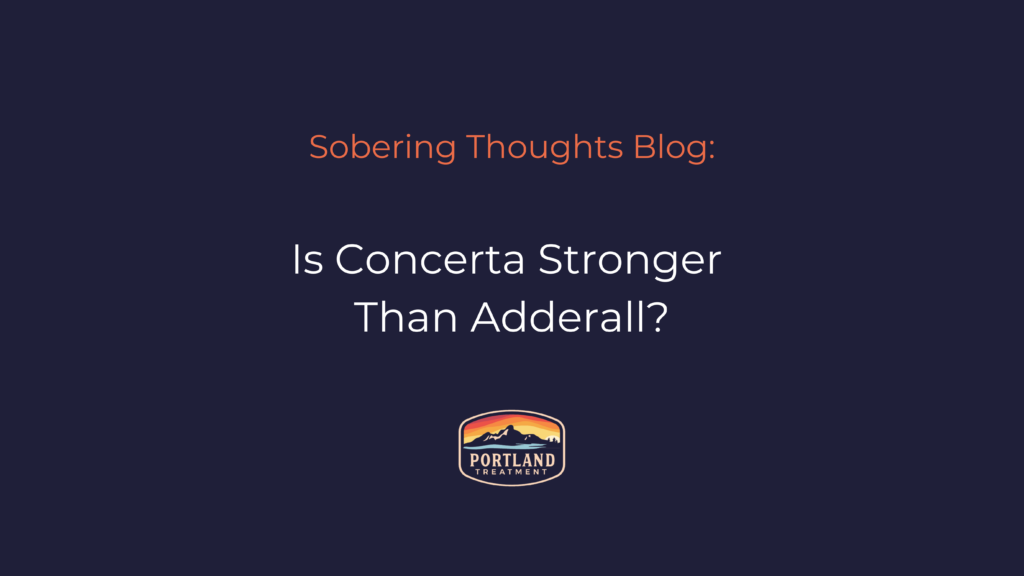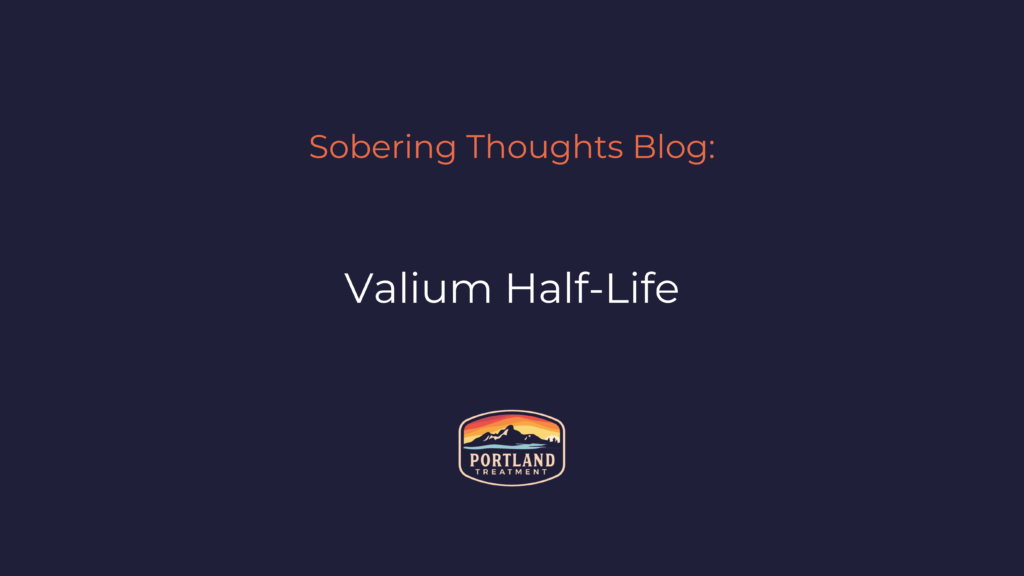Stimulant Dependency Recovery Guide: Understanding, Treatment, and Support Stimulants, a class of drugs that includes substances like cocaine and amphetamines, have a profound impact on the body and mind of those who use them. Understanding the complexities of stimulant dependency is crucial in order to provide effective support and treatment for individuals struggling with addiction. …
Stimulant Dependency Recovery Guide: Understanding, Treatment, and Support
Stimulants, a class of drugs that includes substances like cocaine and amphetamines, have a profound impact on the body and mind of those who use them. Understanding the complexities of stimulant dependency is crucial in order to provide effective support and treatment for individuals struggling with addiction.
From recognizing the signs and symptoms of dependency to exploring rehabilitation and recovery programs, this comprehensive guide aims to shed light on the neurological, psychological, and emotional effects of stimulant dependency, while also offering valuable insights into seeking help and building a support system for a successful recovery journey.
This article will delve into the available treatment options, the importance of professional support, and the development of personalized recovery plans, providing a roadmap for individuals looking to break free from stimulant dependency and reintegrate into a healthy and fulfilling life.
Whether you are personally affected by stimulant dependency or seeking to support a loved one through their recovery journey, this article aims to equip you with the knowledge and resources necessary to navigate the challenges and triumphs that lie ahead.
Understanding Stimulants Dependency
Understanding stimulants dependency is crucial for individuals embarking on the transformative journey towards recovery and reclaiming a fulfilling life.
Stimulants, such as amphetamines and cocaine, can have a profound impact on an individual’s physical and mental well-being. The dependency on these substances can lead to a range of adverse effects, including increased tolerance, withdrawal symptoms, and a disruption of daily functioning. The path to recovery is paved with support, therapy, and a commitment to change. Reaching out for professional help and building a strong support network are vital steps towards breaking free from stimulant dependency and achieving lasting sobriety.
Defining Stimulants and their Impact on the Body
Stimulants, such as Adderall and Ritalin, exert profound effects on the body, impacting individuals’ physical and psychological well-being, necessitating comprehensive treatment and support.
These substances trigger the release of neurotransmitters, particularly dopamine and norepinephrine, resulting in increased alertness and elevated mood. Prolonged use can lead to tolerance, dependence, and potentially severe withdrawal symptoms.
The physiological impact of stimulants extends beyond the initial benefits, influencing heart rate, blood pressure, and sleep patterns. Addressing these complex effects calls for a holistic approach that integrates medical care, psychotherapy, and social support systems to foster sustained recovery.
Recognizing the Signs and Symptoms of Stimulants Dependency
Recognizing the signs and symptoms of stimulants dependency is essential for individuals to seek timely assistance and commence their transformative journey towards recovery and wellness.
Common indicators of stimulants dependency may include heightened anxiety, irregular sleep patterns, sudden weight loss, and increased irritability. Physiologically, individuals may exhibit rapid heartbeat, dilated pupils, and irregular blood pressure. Cognitive impairment, such as difficulty in focusing or memory loss, can also manifest in those struggling with stimulant dependence.
It is pivotal for those experiencing these symptoms to seek treatment in Portland, Maine, where a range of specialized programs and agencies offer tailored support and therapeutic interventions. Embracing a holistic approach to recovery, involving personalized therapy, group support, and lifestyle adjustments, can lead individuals towards sustained abstinence and improved well-being.
Understanding the Neurological and Psychological Effects
Stimulants dependency exerts profound neurological and psychological effects, underscoring the need for individualized treatment and compassionate therapy to facilitate the journey towards healing and renewed life.
The impact of stimulants on the brain can disrupt neurotransmitter levels and alter cognitive function, contributing to a range of psychological challenges such as anxiety, depression, and impaired impulse control. This underscores the critical importance of a holistic approach to treatment that addresses not only the physical dependence but also the underlying psychological and emotional factors driving the addiction.
By embracing a blend of personalized therapies, emotional support, and fostering a sense of community, individuals battling stimulant dependency can embark on a path towards comprehensive healing and sustainable recovery.
Seeking Help for Stimulants Dependency
Seeking help for stimulants dependency involves adopting a comprehensive, holistic approach that addresses the individual’s specific needs and provides unwavering support throughout the addiction treatment journey.
This means that treatment should not just focus on the physical aspects of addiction, but also consider the psychological, emotional, and social factors that contribute to the dependency. It is crucial to tailor the treatment plan to each person’s unique circumstances, taking into account their history, preferences, and any co-occurring disorders. Individualized addiction treatment recognizes that there is no one-size-fits-all solution and that personalized care is essential for meaningful and sustainable recovery.
Available Treatment Options
A myriad of treatment options, including Medication-Assisted Treatment (MAT) and Cognitive Behavioral Therapy (CBT), form the cornerstone of a comprehensive and holistic approach to addressing stimulants dependency and supporting individual recovery journeys.
Medical professionals may recommend MAT to manage withdrawal symptoms, reduce cravings, and stabilize brain function. This includes medications such as methadone or buprenorphine combined with counseling and behavioral therapies.
On the other hand, CBT focuses on changing patterns of thinking or behavior, helping individuals develop coping strategies and tools to address triggers and prevent relapse. This form of therapy enables individuals to understand the connections between thoughts, feelings, and behaviors.
In addition, support groups and 12-step programs provide a sense of community and guidance for achieving and maintaining sobriety.
The integrated use of these treatment modalities fosters a multi-faceted, personalized approach to overcoming stimulants dependency.
Importance of Professional Support
Professional support plays a pivotal role in guiding individuals through their transformative journey from stimulants dependency, offering compassionate assistance and expertise to facilitate comprehensive addiction treatment and recovery.
This support, often provided by experienced counselors, therapists, and medical professionals, creates a safe and nurturing environment where individuals can address the underlying causes of their addiction and develop effective coping strategies. Through personalized treatment plans and evidence-based interventions, professionals enable individuals to reclaim their lives and build a foundation for long-term sobriety.
The guidance they offer extends beyond the treatment phase, fostering ongoing support and encouragement to navigate the challenges of maintaining a sober lifestyle.
Exploring Rehabilitation and Recovery Programs
Rehabilitation and recovery programs offer a transformative and supportive environment, enableing individuals to embark on a holistic and comprehensive journey towards overcoming stimulants dependency and reclaiming their lives.
These programs address not only the physical aspects of addiction but also the psychological and emotional factors that contribute to the cycle of substance abuse. The holistic approach integrates counseling, therapy, and support groups to provide individuals with the necessary tools for sustained recovery. They emphasize relapse prevention strategies and life skills development, ensuring that individuals are equipped to navigate the complexities of daily life without succumbing to triggers.
By fostering a sense of community and shared experiences, these programs create a nurturing and understanding environment, reinforcing the journey towards lasting sobriety.
Recovery Journey from Stimulants Dependency
The recovery journey from stimulants dependency is a deeply personal and transformative experience, often supported by financial and insurance benefits that enable access to essential medical care and detoxification services.
These benefits play a crucial role in providing individuals with the necessary resources to seek professional help and embark upon the path of recovery. Access to medical care and detoxification services is pivotal in addressing the physical and psychological aspects of stimulant dependency. It is through these channels that individuals receive the comprehensive support needed to navigate the challenges of withdrawal and rebuild their lives.
The availability of financial and insurance benefits can significantly reduce the barriers to seeking treatment, ultimately contributing to improved recovery outcomes.
Developing a Personalized Recovery Plan
Developing a personalized recovery plan is a pivotal step in the journey towards overcoming stimulants dependency, encompassing tailored medical care, detoxification support, and holistic therapeutic interventions, often supported by financial and insurance benefits.
This personalized approach ensures that individuals receive comprehensive care that addresses their specific needs and challenges. Tailored medical care allows for the management of physical symptoms and underlying health conditions, while detoxification support provides a safe and effective process for eliminating toxins from the body.
Holistic therapeutic interventions acknowledge the mental and emotional aspects of recovery, offering opportunities for personal growth, stress management, and relapse prevention.
Overcoming Challenges and Triggers
Overcoming obstacles and navigating triggers is an essential part of one’s personal journey toward recovery from stimulant dependence. This journey is often supported by access to medical care, detoxification services, and personalized interventions, all of which are made more accessible with the help of financial and insurance benefits.
When individuals embark on the path to recovery from stimulant dependence, they inevitably encounter various challenges that require careful navigation. A crucial aspect of this journey is detoxification, which addresses the physiological impact of dependence and creates a solid foundation for subsequent stages of treatment.
Medical care plays a pivotal role in this process by offering professional assessments, guidance, and monitoring to ensure safety and effective progress. It is through these medical interventions that individuals receive the necessary support in their journey toward recovery.
Personalized interventions tailored to meet the unique needs of each individual are integral in addressing the complex nature of stimulant dependence. These interventions are designed to provide the necessary tools and strategies to overcome triggers and challenges while fostering personal growth and sustainable recovery.
If you or someone you know is seeking detoxification services for stimulant dependence, Portland Treatment can help you find the appropriate services in a warm and inviting manner. While Portland Treatment doesn’t currently provide these services directly, they are dedicated to assisting individuals in finding detox options in Maine that suit their specific needs.
Don’t hesitate to contact Portland Treatment today to take the first step towards a healthier and more fulfilling life in recovery.
Embracing a Healthy and Balanced Lifestyle
Embracing a healthy and balanced lifestyle forms an essential component of the recovery journey from stimulants dependency, often facilitated by financial and insurance benefits that enable access to ongoing medical support, detoxification, and personalized care.
It is crucial for individuals in recovery to adopt healthy habits that promote physical wellness and emotional stability. This includes maintaining a nutritious diet, engaging in regular exercise, and participating in stress-relieving activities such as yoga or meditation. Establishing a balanced routine and prioritizing self-care can significantly support the recovery process.
Ongoing medical support plays a pivotal role in addressing the health implications associated with stimulant dependency. It provides individuals with access to tailored treatment plans, therapy sessions, and medication management, ensuring comprehensive care and consistent progress. Through financial and insurance benefits, individuals can alleviate the burden of treatment costs, making recovery resources more accessible and sustainable.
Support Systems and Resources for Recovery
Support systems and resources, such as the Mindfulness-Based Relapse Prevention (MBRP) program and Medicaid assistance, play a vital role in enableing individuals on their recovery journey from stimulants dependency, offering valuable community and government support.
MBRP focuses on cultivating mindfulness, emotional regulation, and coping strategies, providing a structured approach for individuals to develop greater self-awareness and resilience in managing triggers and cravings. This evidence-based program integrates meditation practices and cognitive-behavioral therapy to enhance relapse prevention skills.
Medicaid facilitates access to essential healthcare services, including counseling, medication-assisted treatment, and medical interventions, easing the financial burden for those seeking recovery from stimulant dependence. This governmental assistance underscores the significance of affordable and comprehensive care in fostering long-term wellness and sobriety.
Engaging with Support Groups and Peer Counseling
Engaging with support groups and participating in peer counseling, augmented by resources from the U. S. National Library of Medicine and the U. S. Department of Health & Human Services, offers individuals invaluable connections and evidence-based guidance in their recovery from stimulants dependency.
These resources provide a wealth of information and support to individuals navigating the complexities of stimulants dependency. By connecting with others who have faced similar challenges, individuals can gain empathy and understanding in a non-judgmental atmosphere.
Peer counseling and group participation can foster a sense of community and belonging, which are crucial elements in the journey toward recovery. The National Library of Medicine emphasizes the positive impact of social interaction and shared experiences in fostering resilience and promoting sustained recovery.
Utilizing Community and Online Resources
Utilizing community and online resources, including the Mindfulness-Based Relapse Prevention (MBRP) program and information from the U. S. National Library of Medicine and U. S. Department of Health & Human Services, enables individuals with accessible and evidence-based support in their recovery journey from stimulants dependency.
These resources offer a multidimensional approach to recovery, involving not only access to information but also active participation in support networks. The MBRP program, for instance, equips individuals with practical mindfulness skills that promote self-awareness and emotional regulation, crucial for managing triggers and cravings.
The U. S. National Library of Medicine and the U. S. Department of Health & Human Services serve as reputable sources for comprehensive information on stimulant addiction, treatment methods, and strategies for sustainable recovery. This amalgamation of community and online resources demonstrates how individuals can harness a range of tools, from peer support to evidence-based knowledge, to navigate their journey towards a healthier, addiction-free life.
Building a Strong Support Network
Building a robust and understanding support network, with the aid of resources such as the MBRP program and Medicaid, as well as insights from the U. S. National Library of Medicine and U. S. Department of Health & Human Services, fosters a nurturing environment for individuals undergoing recovery from stimulants dependency.
Those grappling with stimulant dependency often require a multifaceted approach, and having a strong support network is pivotal. Programs like Medication-Assisted Treatment (MAT), recognized by the U.S. National Institute on Drug Abuse (NIDA), and the Matrix Model, designed specifically for stimulant abuse, showcase the effectiveness of tailored support systems.
Numerous studies highlighted by the U.S. National Library of Medicine emphasize the far-reaching benefits of peer support and community reintegration.
Reintegrating into Daily Life After Recovery
Reintegrating into daily life after recovery from stimulants dependency involves navigating relationships, rebuilding trust, and setting new personal and professional goals to ensure sustained wellness and relapse prevention.
Rebuilding relationships after addiction recovery can be particularly challenging, as trust may have been broken and communication patterns significantly impacted. Open and honest conversations, supported by empathy and understanding, form the foundation for rebuilding trust and cultivating healthy connections.
Individuals often need to reevaluate their personal and professional goals after recovery, finding renewed purpose and direction while navigating the complexities of daily life. Setting realistic objectives and maintaining a strong support system play crucial roles in achieving long-term wellness and preventing relapse.
Managing Relationships and Rebuilding Trust
Managing relationships and embarking on the journey of rebuilding trust are pivotal aspects of post-recovery life from stimulants dependency, offering individuals the opportunity to foster meaningful connections and regain stability in their personal and professional endeavors.
Recovery from stimulants dependency can be a challenging and transformative period, and cultivating healthy relationships plays a key role in sustaining progress. Building trust with loved ones and colleagues not only aids in the healing process but also creates a supportive network. This network, rooted in trust and mutual respect, can contribute significantly to maintaining sobriety and pursuing fulfilling experiences. Therefore, nurturing these relationships becomes an essential part of the journey toward long-term recovery.
Reestablishing Personal and Professional Goals
Reestablishing personal and professional goals post-recovery from stimulants dependency enables individuals to chart a renewed and purpose-driven path, fostering sustained wellness and relapse prevention in their transformative journey.
Setting personal goals creates a sense of direction and purpose, helping individuals regain control over their lives. This process allows them to redefine their priorities, aspirations, and ambitions, which are essential components of a fulfilling and balanced existence.
Focusing on professional goals presents an opportunity for individuals to regain confidence in their abilities while setting meaningful objectives for their careers. The pursuit of these goals instills a sense of achievement and fulfillment, contributing to a sustained sense of wellbeing and a reduced risk of relapse.
Focusing on Long-Term Wellness and Relapse Prevention
Focusing on long-term wellness and prioritizing relapse prevention strategies post-recovery from stimulants dependency reinforces individuals’ commitment to sustained growth, stability, and fulfillment in their personal and professional lives.
It underscores the dedication to maintaining a balanced and healthy lifestyle, which is essential for ongoing well-being. Introducing these strategies signifies a proactive approach towards warding off potential setbacks and embracing a future grounded in resilience and perseverance. By integrating relapse prevention into daily routines, individuals actively cultivate resilience, bolster their confidence, and fortify their support networks, allowing them to navigate life’s challenges with greater assurance. This proactive stance also aligns with the aspiration for sustained growth and fulfillment, creating a solid foundation for personal and professional endeavors.
Reintegrating into Daily Life After Recovery
Reintegrating into daily life after recovery from stimulants dependency involves navigating relationships, rebuilding trust, and setting new personal and professional goals to ensure sustained wellness and relapse prevention.
It’s essential to acknowledge that the process of reintegration can be complex and challenging, as individuals may need to reestablish their roles and responsibilities within their families, workplaces, and communities. Nurturing healthy communication and rebuilding trust within relationships becomes a pivotal aspect of this journey. It is vital to set achievable goals that align with one’s values and interests, fostering a sense of purpose and direction post-recovery.
Why Portland Treatment is an Excellent Choice for Addiction Treatment in Maine
At Portland Treatment, we understand the complexity of battling addiction and the importance of finding the right treatment. Our approach to addiction treatment is holistic, focusing not only on the physical aspects but also on the emotional and psychological well-being of our clients.
Our Programs and Services
Our treatment programs are comprehensive and personalized. We offer a range of services tailored to meet the unique needs of each individual. This includes:
- Partial Hospitalization Program (PHP): Ideal for those seeking intensive therapy while residing at home or in a sober living environment.
- Intensive Outpatient Program (IOP): A flexible option that allows clients to balance therapy with their daily responsibilities.
- Outpatient Treatment: A supportive bridge between intensive care and long-term recovery, offering customized support for sustainable sobriety.
Treating a Range of Conditions
We specialize in treating various substance addictions, including Adderall, Alcohol, Ativan, and others. Additionally, our expertise extends to addressing mental health issues such as anxiety disorders, depression, and PTSD, which often co-occur with substance abuse.
Commitment to Safe and Ethical Treatment
Our commitment to providing safe, ethical, and effective treatment is unwavering. At Portland Treatment, we believe in empowering our clients with the tools and support necessary for a successful recovery journey.
Contact Us
If you or a loved one is struggling with addiction, contact us today to learn more about our programs and how we can help you on the path to recovery. Portland Treatment is your partner in overcoming addiction and achieving lasting wellness.






